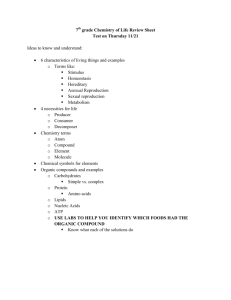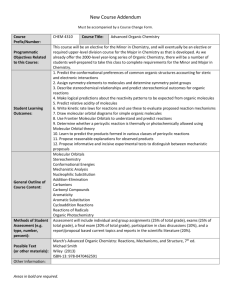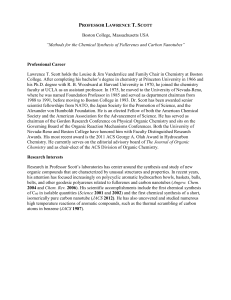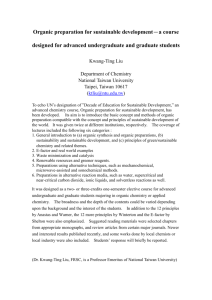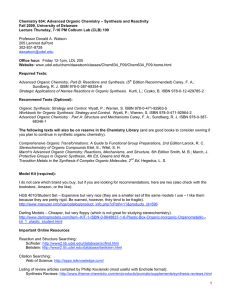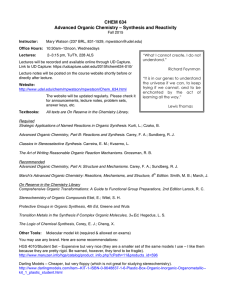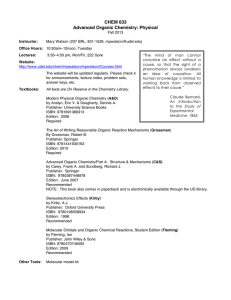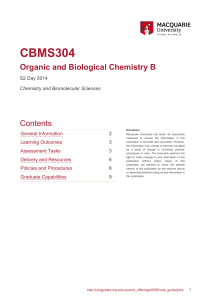CHEM 424 - Advanced Organic Chemistry
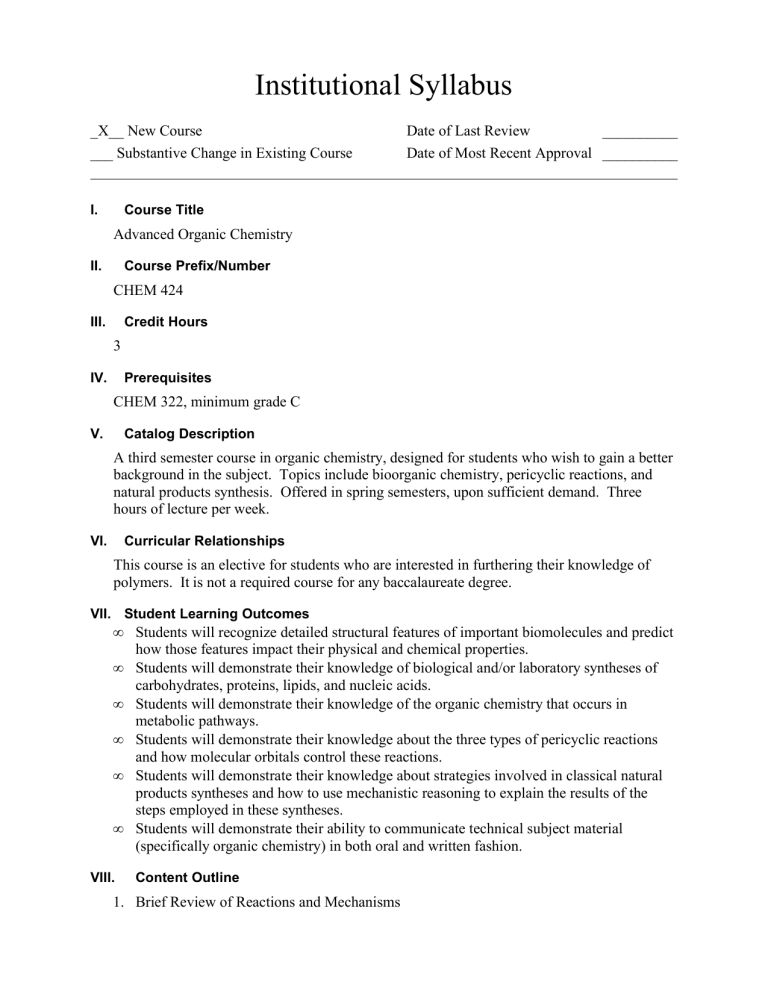
Institutional Syllabus
_X__ New Course
___ Substantive Change in Existing Course
Date of Last Review __________
Date of Most Recent Approval __________
I.
Course Title
Advanced Organic Chemistry
II.
Course Prefix/Number
CHEM 424
III.
Credit Hours
3
IV.
Prerequisites
CHEM 322, minimum grade C
V.
Catalog Description
A third semester course in organic chemistry, designed for students who wish to gain a better background in the subject. Topics include bioorganic chemistry, pericyclic reactions, and natural products synthesis. Offered in spring semesters, upon sufficient demand. Three hours of lecture per week.
VI.
Curricular Relationships
This course is an elective for students who are interested in furthering their knowledge of polymers. It is not a required course for any baccalaureate degree.
VII.
Student Learning Outcomes
•
Students will recognize detailed structural features of important biomolecules and predict how those features impact their physical and chemical properties.
•
Students will demonstrate their knowledge of biological and/or laboratory syntheses of carbohydrates, proteins, lipids, and nucleic acids.
•
Students will demonstrate their knowledge of the organic chemistry that occurs in metabolic pathways.
•
Students will demonstrate their knowledge about the three types of pericyclic reactions and how molecular orbitals control these reactions.
•
Students will demonstrate their knowledge about strategies involved in classical natural products syntheses and how to use mechanistic reasoning to explain the results of the steps employed in these syntheses.
•
Students will demonstrate their ability to communicate technical subject material
(specifically organic chemistry) in both oral and written fashion.
VIII.
Content Outline
1. Brief Review of Reactions and Mechanisms
2. Synthesis, Biosynthesis and Reactions of Carbohydrates
3. Synthesis, Biosynthesis and Reactions of Amino Acids, Peptides, and Proteins
4. Synthesis, Biosynthesis and Reactions of Lipids
5. Synthesis, Biosynthesis and Reactions of Nucleic Acids
6. The Organic Chemistry of Metabolic Pathways
7. Orbitals and Organic Chemistry: Pericyclic Reactions
8. Natural Products Syntheses
9. Student Presentations
IX.
Course Procedures/Policies/Grading Scale
Students are expected to attend and participate in each class session. Homework is assigned and graded. Typically, three or four exams and a comprehensive final exam are given in this course. The exams may include both take-home and in-class questions.
Students will make an in-class presentation (about 20 minutes), complete with visual aids, on a multistep organic synthesis of a natural product. Students will also write a paper about a
Nobel Prize laureate who is an organic chemist.
Normal grading is used for this course.
Grading Scale: >90 = A; 80-89 = B; 70-79 = C; 60-69 = D; <60 = F
X.
Required/Recommended Readings
A typical textbook for this course is the last several chapters of Organic Chemistry, 6 th
Edition, by McMurry. This will be supplemented by original literature and other handouts provided by the instructor.
XI.
Issues Unique to this Course
Because of the elective nature of the course, it is offered only upon sufficient demand
(generally about once every two or three years).
XII.
Additional Departmental Issues
None
